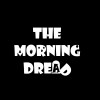Ebooks to Replace Paperbacks?
Ebooks are changing the publishing industry. They're also changing the way in which people access books. For the first time, ebooks are apparently outselling paperbacks; and as the price of ereaders continues to drop, it seems likely that this trend will continue.
Will trade paperbacks go the same way as 8-track tapes and betamax videos?
Will they run alongside each other for a while, rather like cassette tapes and CDs did for a time, before one overtakes the other?
Will libraries have banks of ereaders rather than tables stacked with paper newspapers?I think as the younger generation becomes the older genration we will see the digital trend become the norm. As Cags says, it is also great for the trees!

I think more or less its easier for people to get books by buying them online. Of course I think noval wise those will still sell like normal because you have collectors and a "digital copy" Won't become valuable. But for college I wish I bought all digital copies cause they kept sending me duplicates of books and making me pay for them all the time to rack up my bill price.
I like the convenience of ebooks but I can't help being sad about the fact that our kids will probably not know the joy of curling up with a book instead of a kindle or ipad. There's something about the tactile part of holding an actual book that is a part of the joy of reading.
I'm also mourning the loss of book stores.Ebooks are the best, frankly. Not everyone has an ereader yet so paper books will remain in print but the future is definitely in digital publishing. Since I started ebook reading I have not touched a paper book. Digital is just so much more convenient. The bad thing is that not all books I want are available in ebook format.
Using less paper saves more trees. So, I would expect digital world to continue to destroy the paper world.

Many libraries now have free downloads of books available. I hope the paperback doesn't disappear. Printing costs are now high, so it could happen.
Printing costs are and have been too high for a long time. It was always an over-priced marketplace to begin with. Why? Because it was so specialized. Now, the new digital world, almost anyone can write an Ebook and publish themselves.
I'm sorry, but paperback and hard-covered books are a thing of the past. I've never really been a reader, per se, but from time to time, I do like to sit and read a good book.
It's a whole new digital world and it's actually beneficial for the environment. So, this piece of technology will gain more strength going forward and producers of paperbacks and even hard-covered will become completely obsolete.
I still like not having to rely on having mains electricity or spare batteries available when I want to read.
If I want to follow written instructions while doing something, I find it far simpler to have that on paper instead of on a screen that could shut down or run out of power half-way.
I spend long hours in front of a screen anyway. Using a screen to read for pleasure would take the pleasure away.
Unfortunately, the younger generation driving this trend includes a large semi-literate contingent incapable of reading more than 500 words at a time. For such people, the concept of reading for pleasure simply does not exist.
I sincerely hope if this dismal trend flourishes, I will be left with the ability to print out the digital stuff so that I can read it in the way I wish to do so.I have to agree. I love the smell of a new book (a bit weird I know) I love being able to curl up on the sofa with a book. You must know the feeling when you've poured a glass of wine and curled up with your book. Now I do sound a bit weird, i know.
Reading in bed is not the same without paper either.
With respect to reference books, it is MUCH easier to leaf back and forth through paper pages than scroll around on a screen.Definitely. I don't take reference books to bed anymore (not since uni) but even if I'm reading a novel I sometimes have to go back and re-read, to make sense of something. Far easier to do, and much easier to re-find the original place when you have to.
Digital books will eventually replace physical books. It will also change the format of writing as we know it. Just as Mp3's have changed how we look at albums, I think authors will be able to publish a chapter at a time instead of the whole book; or publish chapters, then the whole book. I have started doing this with music, just releasing a song at a time as they get done, then releasing the whole album. With attention spans getting shorter, I think this will be the norm.
Ebooks are outselling hardbacks, not all print --although that may happen soon. I use both and I think many others will do the same.
I also use both. I have paperbacks next to my easy chair and on the nightstand. I almost always have an Android tablet with me, with a leather (like) cover that comes close to the feel of a book. Not quite the same, I know. But it has some advantages, like the ability to have all of the James Bond novels on it (along with hundreds of other titles), the ability to search for phrases, words, and quotes, and its own light source so I don't have to leave a light on when I'm reading in bed next to my sleeping wife.
I think real books will be with us for a long time. Consider vinyl record albums. Everybody thought they would be completely replaced by CDs. Although CDs are far more common these days, not only are LPs still being produced, purchased, collected, and traded, but they seem to be enjoying a bit of a resurgence in popularity.
- Cousin Fuddposted 13 years ago
0
We were at our branch library when a member from the main branch came by and this question was ask to her. All books on cassette have been replace with CD's and ebooks are available. Many still like to have the real book in hand.
Yes, ebooks are replacing the paperback to some extent.But it cannot replace it completely, as at the time of sleeping, we want to read paperback. this is my opinion, I don't know what people think?
I have a Kindle and it is perfect for reading in bed. It is nothing like reading a computer screen, it's more like a page. When I fall asleep while reading I don't lose my place...although the Kindle did whack me in the face once

I believe that digital books take up to 20% of the book market. Not exactly a high majority, but I believe that as time goes on, this will change. Especially because digital is much easier for authors to distribute their work.
I self-publish my books exclusively on Kindle. The reason I don't do paperback is because of cost. When it comes to self-publishing a paperback, I will lose a lot of my pricing leverage, which is something that a newbie like me needs to get his name out.I have published both paper books and eBook and for the past 2 years my eBook sales have way outnumbered my paper sales. I believe we will always have the paper books but eBooks may out sell them.
I am sorry to say that by the time the toddlers of today reach their 30’s everything will be down loadable or on a CD. There will be no more traditional news papers, (their survival now comes from being linked in with the local television station) and no more printed books of any kind. To find a printed book will come from a used book store visited only by collectors.
It’s a sad state of affairs, but this is our world now, ever growing in technology. Keeping up with peoples needs for convenience as we continue on in our disposable society.
Think of all that we have already lost. Computers in the class room replacing textbooks. Online education, Mom and Pop stores have been bought out by big chain stores. There is no TV repairman and shoe cobblers have long since gone by the way side. And whatever happened to the milk man? Post office’s will soon be ran from a 4 X 4 post at the grocery store, which isn’t a grocery store any more but a super store selling everything you could need. Convenience, that’s the ticket. My grandmother, how recently past at the age of 97 told me once that things are so much easier now then when she was my age, that’s why so many have become so fat and so lazy, convenience.I agree with Cagsil on that one with saving trees. However, did you know that back in the 1700s and 1800s, paper was hard to come by because they were so expensive in the British regime as well as the fact that they were taxed really high.
There is also a serious environmental impact from ereading devices which include some very toxic metals and are usual disposed of improperly.
Well, anyone who has tried reading this year's Pulitzer Prize Winner (come on people, please don't need me to tell you what book won this year) on an eReader knows they still haven't QUITE got the technology down.
 The power-point sections at the end were quite illegible.
The power-point sections at the end were quite illegible.
Also, big draw back to ereaders is that you can't flip back and forth through pages with ease. Sure you can for a few pages, but if you need to jump back three hundred pages to check a chart, and then jump forward 150 more to check an end note before coming back to where you were, you're in for a headache.
Also, the look and feel of a book cannot be beat. When ereader's look and feel like books, display a page of texts as clearly as paper, and enable flipping between hundreds of pages within seconds, then it can compete with a real book. Right now they are nice, but their functionality can't compete with a real book. Look for that to change in future generations of eReaders.
Also, on demand printing is SO cheap anymore and people LOVE real books that I believe they will remain a premium item like records have. It's a little short sided to compare them to 8 tracks or tapes that had no audio advantage of digital advancements. I'm not here to give a lesson in the natural compressive properties of vinyl and their aural superiority to digital mediums, but the appropriate analogy for a book in terms of past music media is the vinyl record. Anyone who thinks today's kids are wired for digital only and that books are doomed when they come of age should check out their local music store's vinyl selection.You might want to check on the toxic waste that is produced by pulp and paper mills before dismissing the environmental impact that paper has on the world.
If you search for pulp and paper mill toxins in Google you'll find some interesting reads. One that caught my eye is on the Canadian government website and it states that 50% of water pollution in Canada is from pulp and paper production and 5.6% of air pollution caused by industrial sources. The report is from 1992, so it is likely out of date, but I doubt a great deal has changed since then.
While electronic devices have their own environmental issues (like the toxic metals and the generation of electricity) we can't say that paper is clean, even when properly recycled.I was just saying that no production is pollution neutral.
Personally I use paper and e-. I suspect both will be used for decades to come, maybe centuries.
Do you find it sad that none of us has a library of papyrus scrolls in the den? Do you miss the feeling of pulling out the cylinders and unrolling to the right place?
Technology changes. The way information is stored and consumed changes. 100 years ago music was recorded on cylinders of wax. People like me who grew up with vinyl lps miss them, but CD is much more convenient and higher quality in most respects. And mp3s are more convenient still. There is still something about the analog recording and playback of vinyl that will be missed, but the world has moved on.
I know that I'll miss the feeling of a paper book in my hands, but technology will eventually make them museum pieces. It will help the environment much more than the problems with ereaders and computers will hurt it, especially as the technology advances and recycling compliance improves.I hope not. I like my paper books. To say digital is better than paper environmentally is not so accurate. Paper does not have to destroy a decade old tree- paper can be made from annual crops. True, the production of paper is polluting, but so is the production of electronics, and electronics do not use a renewable resource like paper. It's a fine line and I hope we can find better ways of manufacturing and have balance between paper and digital.
I can't read anything on a screen for too long either...so I want to see books stick around for at least another 40-50 years.No papyrus but I do have some engraved metal and some painted wood text--an even older method. Not all technologies get replaced, if they still do a job the best in at least some cases. I think paper book will stay with us for a while yet.
I don notice that readers don't go into the bookstore and buy books anymore. All the sales are made by ebooks sales. Many people will buy online from the privacy of their own homes because it's easier for them.
- GoldenThreadPressposted 12 years ago
0
It was interesting reading the different replies. I am a writer in the book industry and have been getting updates from Publisher's Weekly, an online forum of weekly updates on the publishing industry. This question has been posed not only to the publishers and publishing houses, but also to the booksellers. You'd be surprised that although the number of books being purchased might be ebooks, but one has to consider the number of submissions each day that are received by publishers throughout the world. The numbers are staggering.
These submissions aren't going for the ebook, although they may eventually appear in this category, but writers want their books in print. Publishers can't keep up with the incoming submissions and don't see a decrease, so what do the numbers tell us? I believe that there are a lot of other "press" options for writers and vanity press or self-publishing which may account for the increase. So the market is flooded with new books by writers each and every day. Even so, the consensus is that people still want to feel (and yes, smell) the physical books. There is something intangible about seeing a story in print that you can't get from seeing it on the screen. The e-market, I believe, is still too new to make a judgement as to whether bound books will be relegated to the back room. Besides, not everyone can afford the Kindles and Nooks or even a computer. My vote is that books will remain and not go away.--Deb I do hope you are right, Deb. I've got lots of books on bookshelves, many of which I've read several times. Sometimes I just pick a book up and refer to it, because I remember that somewhere in it there is something I want to refamiliarize myself with. Others are reference books of quotations, symonyms and anomyms, a battered old Oxford Concise Dictionary. Some are falling apart but all are treasured possessions.
I'm also one of those vain people who's had their own writings professionally made up into paper back book form. I have a dozen or so all neatly placed on one of those bookshelves.
I still enjoy the pleasure of attending a 'garage' or 'car boot' or 'moving house' sale where you can pick up a book for a couple of dollars. I did so only three days ago.
ebooks? Yes, I've downloaded same. They're saved are rarely looked at again. A computer screen is just not as good as a book one can hold in one's hand.
Let's hope books as we've known them for so long don't go into nothingness...at least in my lifetime.- GoldenThreadPressposted 12 years ago
0
I agree. I, too, have utilized vanity press. And, I do not consider anyone "vain" in the least, so congratulations. What I find interesting is that the publishers aren't in any hurry to disassemble their printing presses, so I wouldn't worry at this point. My concern is that I have been watching and reading the types of books going on e-book sites and some of them are atrocious at best--poor spelling, grammar, and storyline, characters, etc. We should be worried about this, I believe, because the act of creating a good book takes time and effort. It shouldn't just be a place to "dump" one's work. The biggest complaint between writers and publishers at this time is that it takes about one and one-half to two years from acceptance to completion. And then comes the marketing. With this type of turnaround, it is no wonder the e-book market is flooded. I say let's celebrate all good writers on both platforms for the good work that is being created, so that those who are reading (which should be another forum under literacy), find these markets with rich offerings. By the way, love this topic and forum--Kudos!
Just like the iPod eventually killed the CD, the Kindle and the iPad are well on their way to kill the physical book market. There is a big difference in price, eBooks are much much cheaper than hard copy books.
I certainly hope actual books do go out of trend.. Haha.
I'm not too keen on technology. I love the feeling of turning a page, seeing how much progress you made, how much is left. Plus when I'm half way through a book I like to flip to the last page and read the last sentence. Then again I don't know that a ebook doesn't let you do that.
And correct me if I'm wrong, isn't it much better for your eyes to read paper rather a screen?
could be crazy.
I love actual books. <3
Related Discussions
- 5
Do you prefer your books be hard cover or paperback?
by lilibees 14 years ago
Do you prefer your books be hard cover or paperback?I am a Hard covered person!
- 28
For those with ebook readers: Did it replace physical books or just increase how
by tbartle 12 years ago
For those with ebook readers: Did it replace physical books or just increase how much you read?There's all this talk about how there won't be physical books anymore and that everything is going digital. As a writer, I hope that's not true. I have an ebook reader and I found I just read more because...
- 9
Which books sell more, ebooks or paperbacks?
by Joyette Helen Fabien 10 years ago
Which books sell more, ebooks or paperbacks?
- 9
Regular paper books, audio books, or digital? Whats your prefrence?
by LollyUnjolly 13 years ago
Regular paper books, audio books, or digital? Whats your prefrence?
- 17
Does a kindle replace a book? What do you prefer?
by mr-burns 13 years ago
Does a kindle replace a book? What do you prefer?
- 23
Do people still buy books any more?
by BlissfulWriter 9 years ago
Do people still buy books any more?With many bookstores going out of business, do you still buy books anymore? If so, do you buy the traditional books, audio-books, or eBooks?































